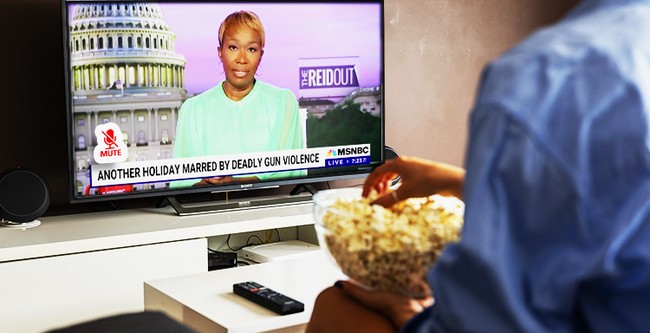
This article was originally published on Washington Examiner - Opinion. You can read the original article HERE

Academic boycotts have become a popular fad among collegiate faculty. The American Association of University Professors just endorsed boycotts, noting that these actions “can be considered legitimate tactical responses to conditions that are fundamentally incompatible with the mission of higher education.”
Students, taking the cues from faculty, have followed suit.
Recently, I found myself a target of their ire when student groups calling themselves the “Divestment Coalition” announced a boycott of my classes at Sarah Lawrence College.
The reason for the boycott? My support of Israel’s right to exist and defend itself in response to the most brutal attack on Jewish life since the Holocaust.
The group went beyond just calling for a boycott. They disrupted my class session during our course-shopping period, intimidated potential students by sending them direct, libelous messages about me, and pressured them to drop my classes. In a small school such as Sarah Lawrence, peer pressure from groups can be intense and almost impossible to resist as a student.
The school’s administration has said nothing publicly about the overt antisemitic attacks on me, and it has failed to chastise students for disrupting the course selection process. In doing so, the school administration sent a message to the community that this behavior is tolerated on campus.
This is hardly surprising given the dangerous and hate-filled environment toward Jews the administration has allowed to develop over the past decade, which was alarmingly detailed in a Title VI complaint over the school’s “persistent and pervasive” antisemitism.
Antisemitism on campus sadly is nothing new. Far more disappointing, however, is the reaction from my fellow faculty members — only one faculty member has reached out to me since the disruption.
While some faculty are open about their hostility toward Jews and Israel on campus, there are many faculty horrified by the behavior of the student disruptors but petrified to speak out or even contact me. Cancel culture has made it almost impossible for them to stand up for fellow faculty or take a stand against the disruptions to education.
In its nationwide faculty survey, the Foundation for Individual Rights and Expression found that, rather than enjoying a career of free and open inquiry, 67% of academics experience one rife with fear and intimidation and find themselves self-censoring and keeping their views to themselves. FIRE found that roughly one-third of faculty often feel they cannot express their opinions on a subject because of how students, colleagues, or the administration would respond. That is even higher than the one-fifth of students who report self-censoring for the same reasons.
Moreover, the data revealed that more than half of the faculty respondents (52%) are worried about losing their jobs or reputations because someone misunderstood something they said or did, took it out of context, or posted something from their past online. These reputational effects are more pronounced in smaller schools where cliquish monoculture, intolerant of any dissent, can easily pervade every event and interaction.
That’s why my colleagues have remained silent when many know that boycotting in the academy is the antithesis of free and open inquiry. Many of these professors also understand that class disruption runs against the school’s commitment to respect differences. Indeed, Sarah Lawrence’s own diversity, equity, and inclusion commitment says students should be able to “work constructively with and learn from diverse colleagues” and emphasizes that “people from different backgrounds and with different views be prepared to treat one another with mutual respect and honest curiosity so that they can engage and learn from one another.”
Trapped in the same monoculture that represses the intellectual curiosity and openness of my students, my colleagues are afraid to run afoul of the strong antisemitic forces that have come to dominate so much of campus life. They do not want to join me as persona non grata.
This is yet another example that proves academia’s supposed commitment to equality and respect has some dangerous blind spots. These blind spots deeply harm students by creating an illiberal and hostile climate for many ideas and beliefs and prevent students from fully engaging in academic life and the truth-seeking enterprise.
So many students are afraid to ask questions, take particular classes, tackle certain problems, and be intellectually curious because cancel culture and illiberal behaviors of their peers and teachers is moving the university away from truth seeking. Higher education must reverse this damaging trend.
CLICK HERE TO READ MORE FROM THE WASHINGTON EXAMINER
Samuel J. Abrams is a professor of politics at Sarah Lawrence College and a senior fellow at the American Enterprise Institute.
This article was originally published by Washington Examiner - Opinion. We only curate news from sources that align with the core values of our intended conservative audience. If you like the news you read here we encourage you to utilize the original sources for even more great news and opinions you can trust!










Comments